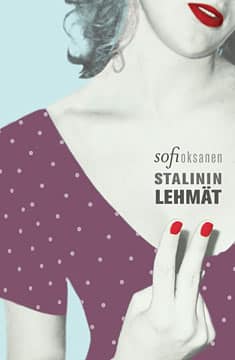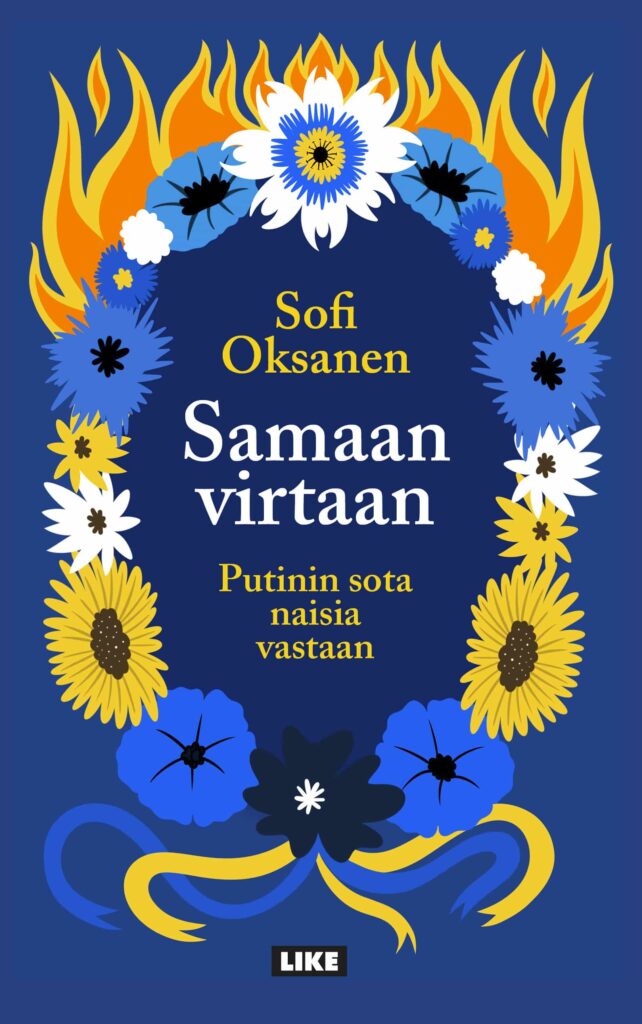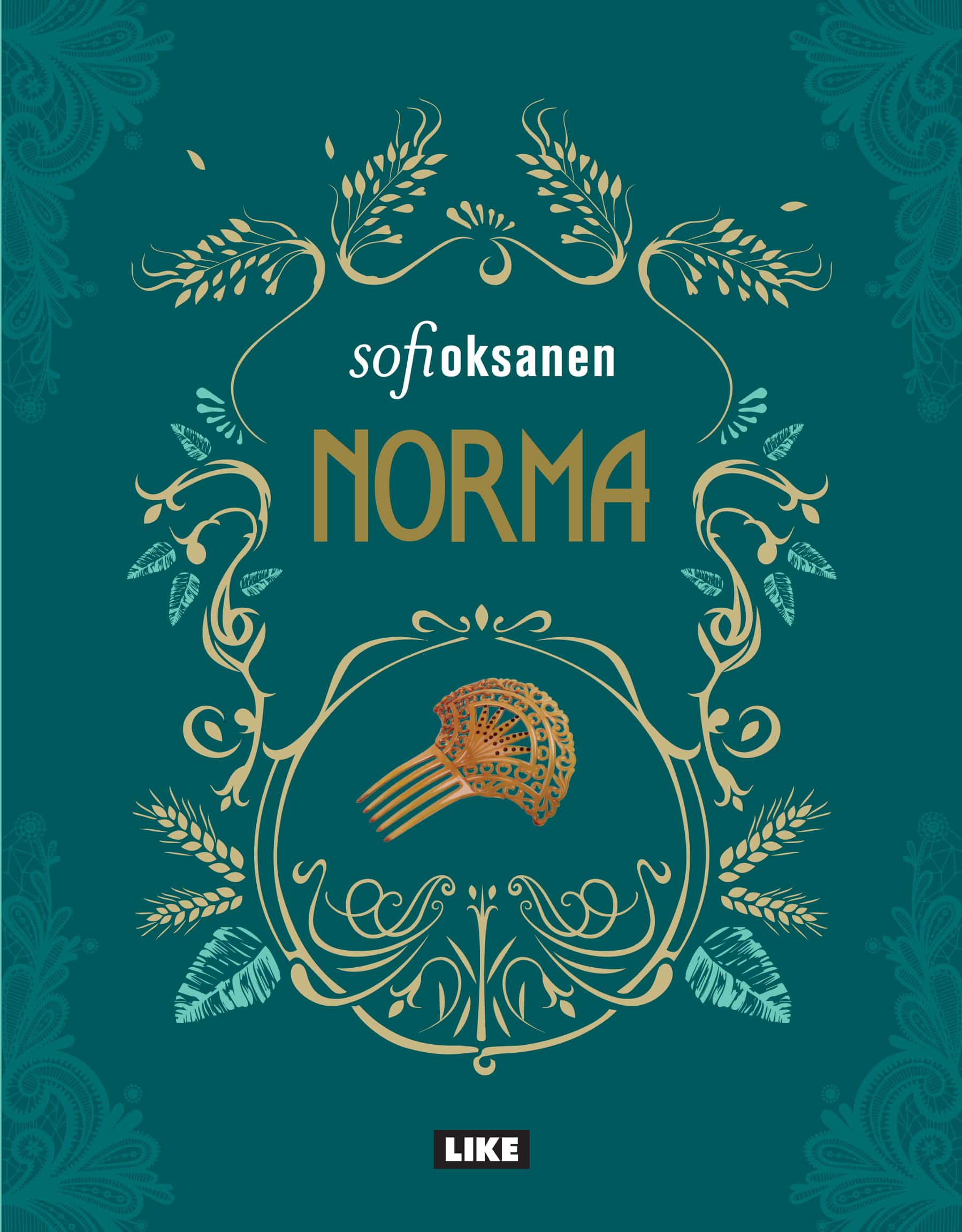
Kun kyyhkyset katosivat When the Doves Disappeared
The Estonian Quartet #3
When the Doves Disappeared is a story of occupation, resistance, and collaboration in Estonia during and after World War II. The novel follows the experiences of three characters: Roland, a principled independence fighter; his cousin Edgar, who will do almost anything to hide his secrets and maintain his connection to those in power; and Edgar’s wife Juudit, who is buffeted in turns by her love for a German officer, her fear of returning to her unhappy, unconsummated marriage, and her bond with the idealistic Roland.
When The Doves Disappeared is the third novel in The Estonian Quartet – a series depicting the division and annexation of Europe, and the consequences that reverberate from the 30s well into to the present.
Awards
| Longlisted for the International Dublin Literary Award Ireland | 2017 |
Reviews
-
“Oksanen manages to relate these stories without horror or judgment, and reminds the reader that, whatever else people in wartime may do, they are human creatures, and not the one-dimensional monsters that history makes them seem to be.”
-
“Oksanen depicts civilian life in wartime and under communist oppression in rich historical detail, skillfully manipulating chronology and threading clues subtly throughout the narrative as suspense builds. Highly recommended.”
-
“Sofi Oksanen is the most exciting writer of the present century in Estonia. No other author's work has been discussed as heatedly, admired as much, decried as much, doubted as much and crowned with as many prizes. /…/ This kind of storytelling can be called terrorist storytelling: this is how you can hurt the reader most without even giving him a chance to ask why. But Sofi Oksanen knows exactly why. Sofi Oksanen's story plants an aching, painful spot inside you, that won't go away, so that eventually you have to touch it.”
-
“Oksanen captures both the futility of the citizens of a tiny country who yearn for freedom and the dark heart of an opportunist who would sell out his own family in order to survive. This is powerful fiction that stirs history, war crimes, and psychology into a compelling mix.”
-
“When The Doves Disappeared is without a doubt the greatest landmark yet in Oksanen's production, a pure masterpiece. /…/ Oksanen writes about this historically dynamic but humanitarianly tragic double occupation with the analytical sense of a historian paired with the passion of a novelist. The combination is groundbreaking. /…/ [A] carefully and dedicatedly developed masterpiece. /…/ Oksanen skillfully weaves violent world history into a number of individual portraits.”
-
“Oksanen masterfully constructs her world; paranoia and fear drip like sweat from the pages.”
-
“The unsolved murder of Rosalie, which leads to fateful choices, forms the run-up to the skillfully constructed intrigue that keeps the reader captivated and reveals new plot turns till the very last page. … The novel is thoroughly armed with background facts, and grippingly recounts the two occupations; the cruelty and the atmosphere, the Estonians' hope for independence, the expectations and disappointments. Apart from the greater historic strokes, rural and urban life during the two time periods is depicted convincingly and in detail.”
-
“Sofi Oksanen's new novel was worth waiting for. /…/ As in her previous works, the personal is strongly political also here. /…/ Oksanen is a master at rendering people in precisely those circumstances.”
-
“When the Doves Disappeared is powerful and convincing. Oksanen lives up to all the expectations. /…/ Oksanen unites political history, micro history, and fiction in an intelligent way.”
-
“A complex, captivating and challenging novel. /…/ Oksanen's skill as a storyteller and language accommodator is obvious.”
-
“Oksanen has written a magnificent and gripping novel that through its intensity irremediably sweeps the reader along into a world that prevails also during the pauses from reading as well as long after having finished the book.”
-
“The novel is characterized by the powerful portrayal of the spirit and aesthetics of three decades. /…/ If she wanted, Oksanen could easily devote herself to writing thrillers. The intrigue of this novel is almost fastidiously intricate.”
-
“Sofi Oksanen has clearly done her research. In her new novel the times of war and occupation feel real, they look real, and the persons are real – some even literally.”
-
“At first it seems Oksanen is turning to the new literary movement that uses the blueprint form to reflect the horrors of the Second World War, a movement in which Jonathan Littell's The Kindly Ones is a corner stone. But the further one travels in the novel, the more clearly emerges the inevitable Franz Kafka's model: the center of power always gets away, no matter how many times the mutilated man manages to slip across from the side of the trampled on to the ones who trample. /…/ With overwhelming power Oksanen shows how devastating the official lie and the silence is to individuals as well as to personal relationships and the country as a whole.”
-
“It is Oksanen's talent for finding convincing voices to carry the narration that makes this novel such a powerful and moving story. In many ways it can be said to have a kinship with the great Russian classics, as a story with many layers. At the same time this novel is so modern in its emphasis of the documentary subject matter and in its analytical attitude to the historical truth. /…/ The story offers a lot of suspense and many surprising twists. /…/ Sofi Oksanen presents a large cast of characters, that all contribute to providing this grandiose story with necessary intimacy and sensuality. /…/ In When The Doves Disappeared [Oksanen] demonstrates more clearly and convincing than ever before what a unique literary talent she possesses.”
-
“Sofi Oksanen is the biggest Nordic author of the moment. /…/ What a remarkable writing ability this young Finnish woman possesses. /…/ She writes with a prose that is constantly alive and pulsating without for a second losing the perfect pitch.”
-
“Sofi Oksanen's [When the Doves Disappeared] shows what fiction can be when it is at its very best. /…/ The threads between the three main characters Edgar, Juudit and Roland are so skillfully woven across multiple time frames that the entire picture doesn’t emerge until after the last page.”
-
“When the Doves Disappeared is an engaging and extraordinarily well-written novel about a dark time.”
-
“What makes the book great art and cements Oksanen's position as one of the Nordic coutries' absolutely foremost literary voices, is her wonderful literary style. On each and every page I pause in admiration of her metaphors… If Sofi Oksanen's way of letting the novel restlessly orbit a dark core brings to mind epic masters like William Faulkner and Joyce Carol Oates, she is rather an heir of Eyvind Johnson in her processing of the historical substance.”
-
“A courageous, important and great book.”
-
“Sofi Oksanen writes with an artistically impeccable mix of raw brutality and an emotional wealth of detail. /…/ The plot creates an atmosphere like that of le Carré.”
-
“Sofi Oksanen has spoiled me with her smart and sharpened prose, which at its best reaches in under the ribs and with ruthless clarity points out where it hurts the most, in mankind and in society.”
-
“Sofi Oksanen (…) manages to shine on surprisingly many levels. /…/ That a single pen can write so superiorly in terms of composition and at the same time succeed, thanks to a finely tuned ear, to listen deeply into the bodies that whirl around in this dramatic, colorful and quite complex prose. /…/ The action is turned up to a level on par with Quentin Tarantino and Leo Tolstoy”
-
“Suspenseful, moving, horrifying, and very skillfully written.”
-
“Finnish-Estonian superstar Sofi Oksanen knows what she's doing. /…/ Her prose is razor sharp, but also beautiful, and the construction is smart.”
-
“A brilliant novel… Playwright Sofi Oksanen creates scenes that burrow deep into the reader in a uniquely dense, well-translated prose.”
-
“As living history and intense composition, Sofi Oksanen's [When the Doves Disappeared] rises above contemporary stories. /…/ Captivating like a thriller.”
-
“Sofi Oksanen has written another masterful novel (…) reinforcing her position as one of the greatest Nordic authors”
-
“This is an extraordinary story, written in an extraordinary way: a complex and skillful construction, a fascinating narration that plays with the realism of everyday life, the transition from 'I' to 'He', the fog thrown on some elements that gradually lifts, the beauty of certain portraits.”
-
“A masterful polyphony”
-
“A fascinating family saga spanning from 1940 to 1965 in the heart of a country experiencing the caprice of history.”
-
“With great skill, Sofi Oksanen gradually weaves her web and turns her cards over. Very well-written thanks to its suspense and portrait of an era, When The Doves Disappeared should ensure a new success.”
-
“When The Doves Disappeared confirms the dazzling literary talent of Sofi Oksanen, who combines personal and historical narratives with as much efficacy as pertinence.”
-
“Sofi Oksanen's remarkably dense novel, rich in dialogues, shows the depth of a tear. It shows us how, seventy years later, the resulting pain has been passed down through two generations.”
-
“After Purge and Stalin's Cows, Sofi Oksanen continues her Estonian fresco and confirms her literary power. […] Sofi Oksanen validates her impressive literary mastery.”
-
“This masterful and deeply touching novel beautifully blends fiction and historical reality.”
-
“The mastery of dialogues, together with the harshness of her writing, her ability to portray the inner turmoil of the characters that are battered by the ill winds of history, makes her novels unforgettable.”
-
“An unusually well-balanced novel, combining a very complex narrative architecture with an emblematically simple story. /…/ Sofi Oksanen constantly changes the tone and the style of the novel; she shifts perspectives and goes back and forth in time, without the reader ever getting lost. That in itself is a small miracle that confirms the exceptional skills of the writer. /…/ An explosive text with a dark heart, this story is a reflection of history: merciless.”
-
“Suggestions of psychological threat make [When the Doves Disappeared] great and compelling.”
-
“The end is masterful and leaves a both painful and cathartic shiver down your spine. A powerful elegy, but in no way sentimental. Where do you find that these days? Read it and spread the word on Sofi Oksanen!”
-
“Another exciting work by Sofi Oksanen, the acclaimed author of Purge. She eerily examines a complex era in which it was not easy to set an honorable model of behavior.”
-
“Elegant and multi-dimensional. A new jewel by Oksanen.”
-
“A powerful novel thanks to the thoroughness with which the characters are built. /…/ In her rigorous approach to historical events we discern her determination to write great novels. And she achieves it.”
-
“Sofi Oksanen continues to dominate the story, from beginning to end, with a harsh and chilling poetic force. Interweaving deep and personal motivations, hidden love stories or insatiable ambition, she weaves a perfect piece of literary jewelry. /…/ Oksanen alternates this epic grandeur with kaleidoscopic psychological precision.”
-
“A chilling story of loss and betrayal. /…/ [When the Doves Disappeared] is a piercing look at characters striving to retain their humanity amid fear, violence, and secrecy.”
-
“Powerfully evocative. /…/ Has the quick pace and plot twists of a literary thriller.”
-
“Oksanen is also a playwright and this shows in her tight control of the shifting timelines and viewpoints. No word is out of place /…/ A multi-layered novel where everyone and everything is weighted with significance. It is a rich and sometimes heavy feast – tense, dense and intense. Sofi Oksanen is a serious novelist in all ways.”
-
“A brave and important voice /…/ Betrayal, secrecy, and memory are the haunting themes of Sofi Oksanen's accomplished [When the Doves Disappeared] /…/ Oksanen's insights and intuition mean she is fast becoming one of the foremost voices in the ex-communist world.”
-
“Oksanen isn't merely a Finnish writer who has broken through. The author of Purge, which sold over a million copies, is an international publishing sensation, frequently likened to Stieg Larsson /…/ These scenes are pregnant with a spooky low-level menace.”
-
“A superb novel /…/ Over it hangs a Graham Greene-like atmosphere of human wretchedness and compromised political faith.”
-
“A powerful angry work”
-
“No one in these pages is predictable, because survival in this period, Oksanen so beautifully reveals, meant learning to love only from the part of the heart that knows how to betray.”
-
“A brilliant novel /…/ Great thriller about a part of the world not well-known to Western readers. Sofi Oksanen is a writer to watch.”
-
“Gorgeousness jumps off the page /…/ beautifully rendered.”
- Author
-
 Sofi Oksanen
Sofi Oksanen
- Published
- 2012
- Genre
-
- Literary
- Pages
- 366
- Reading material
Finnish edition
English edition
- Rights sold
-
Albania, Fan Noli
Brazil, Record
Bulgaria, Perseus
Canada, Anansi
Catalonia, La Magrana - RBA
Croatia, Fraktura
Czech Republic, Euromedia
Denmark, Rosinante
Estonia, Varrak
Finland, Like
France, Stock
France, IEO-PACA (Occitan)
Germany, Kiepenheuer & Witsch
Hungary, Scolar
Iceland, Forlagid
Italy, Feltrinelli
Latvia, Zvaigzne ABC
Lithuania, Versus Aureus
Netherlands, Ambo Anthos
Norway, Oktober
Poland, Czarne
Portugal, Alfaguara
Romania, Polirom
Russia, Corpus
Slovenia, Beletrina
Spain, Salamandra
Sweden, Albert Bonniers
Turkey, Pegasus
UK, Atlantic Books
Ukraine, Folio
US, Knopf
- Film rights sold
-
Finland, SF Studios/Cinematic Inc.






